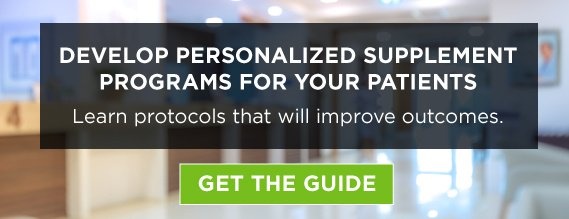
Since medical researchers first developed liposomal technology, scientists have been exploring unique applications of this advanced technology, and it’s changing the game with supplements.
Over the last few years, these microscopic fat-soluble vesicles have improved the supplement and medication delivery landscape, providing an alternative solution with better absorption rates and efficacy. But some are still unsure as to what liposomal technology actually is.
What Is Liposomal Technology?
To understand liposomal technology, let’s start with its building blocks. First off, a lipid is a diverse group of molecules that are insoluble in water and includes cholesterol, triglycerides and fatty acids, such as phospholipids. Lipids are an integral part of the human body as phospholipids are a primary component of cellular membrane structure.
A liposome, which is derived from a lipid, is created by a bilayer of phospholipid molecules that transport the active ingredient directly to the desired source so they are more efficiently absorbed into the body. The liposome acts like a protective microsphere by encasing the active ingredient in a fat-soluble bubble that has a higher resistance towards stomach acids and degradative enzymes than the original form.
This enhanced delivery of supplements may even have equal or greater efficacy than higher doses of traditional capsules that are less bioavailable. This type of supplement can be great for patients with digestive issues by delivering the nutrients they need without causing further irritation.


Advantages of Using Liposomal Technology for Supplements
Healthy and Tolerable Nutrient Transportation
Since the liposomes are made of the same type of lipids as your own body’s cell membranes, liposomes can be used to effectively deliver nutrients to the specific part of the body for faster absorption and application.
Whether a molecule has difficulty getting absorbed due to size or fast degradation, liposomes can serve as a useful method for transporting these vital nutrients in their full—and most bioavailable—form. In addition to delivering the active ingredient, the liposome also fuses with the cell membrane, which adds more phospholipids to help with cellular repair.
Increased Permeability and Efficacy of Water-Soluble Vitamins
Before a vitamin can be used in any meaningful way, it must go through the hurdles of being absorbed properly. Water-soluble vitamins like Vitamin C and B12 get absorbed at a fraction of the dose taken due to the breakdown of acidic juices and digestive enzymes in the gut.
Thanks to the innovative use of liposomal technology, patients with a nutrient deficiency can rely on the accuracy and dosage delivered by supplements created using this technology. For the patient, this can mean taking fewer doses and eliminating poor quality supplements.
Fat-soluble vitamins, like Vitamins D, A, E, and K, are not generally made using liposomes, as they are already capable of permeating the tissue, and increasing their bioavailability is not necessary.
Efficient Delivery of Nutrients
Beyond making absorption easier, liposomes also increase its speed. For molecules like melatonin, which are used to enhance sleep, the rate of absorption is important in ensuring that you fall asleep sooner rather than later.
Liposomes carrying nutrients also bypass the liver and primary stages of metabolism by first deliver the active ingredient into the lymphatic circulation. This makes the supplement more effective and will allow patients to experience the effects more quickly.
Bulky Nutrients Transported with Ease
L-theanine is an amino acid found in green tea and is famous for its ability to act on pathways in the body to lower stress and anxiousness while enhancing focus, memory, and learning.* Herbal extracts of green tea naturally have poor absorption and bioavailability, so many patients who are looking to feel the benefits of this amino acid may not be experiencing the positive effects due to improper dosage.
Herbal extracts used with liposomes are called phytosomes because they are created through a slightly different process. Instead of encapsulating a nutrient, a plant (“phyto”) extract, or its constituent are attached to the phospholipid membrane of the phytosome to make a version that is more identical to the body’s own cellular membrane.
This complex has been studied with other herbal extracts such as ginkgo biloba, grape seed, milk thistle, and ginger. Results from blood plasma levels showed that phytosomes exhibit better pharmacokinetic and pharmacodynamic profiles than conventional herbal extracts.
Liposomal technology provides scientists and medical practitioners an advanced method for delivering supplements to their patients. But finding liposomal supplements on your local pharmacy’s shelf may not be a reality for some patients, as the technology is not yet widely available.
Educating patients about their options is necessary to provide them with the best care possible. And with better absorption rates and greater efficacy than most overly marketed products, liposomal supplements may one day become the standard for the delivery of certain high-quality ingredients. Patients with concerns ranging from quality of sleep to a stronger immune system could find their answers in liposomal technology.
*These statements have not been evaluated by the Food and Drug Administration. This product is not intended to diagnose, treat, cure or prevent any disease.













.png)

.png)




